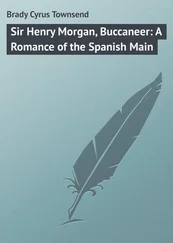Cyrus Brady - Commodore Paul Jones
Здесь есть возможность читать онлайн «Cyrus Brady - Commodore Paul Jones» — ознакомительный отрывок электронной книги совершенно бесплатно, а после прочтения отрывка купить полную версию. В некоторых случаях можно слушать аудио, скачать через торрент в формате fb2 и присутствует краткое содержание. Жанр: foreign_prose, на английском языке. Описание произведения, (предисловие) а так же отзывы посетителей доступны на портале библиотеки ЛибКат.
- Название:Commodore Paul Jones
- Автор:
- Жанр:
- Год:неизвестен
- ISBN:нет данных
- Рейтинг книги:5 / 5. Голосов: 1
-
Избранное:Добавить в избранное
- Отзывы:
-
Ваша оценка:
- 100
- 1
- 2
- 3
- 4
- 5
Commodore Paul Jones: краткое содержание, описание и аннотация
Предлагаем к чтению аннотацию, описание, краткое содержание или предисловие (зависит от того, что написал сам автор книги «Commodore Paul Jones»). Если вы не нашли необходимую информацию о книге — напишите в комментариях, мы постараемся отыскать её.
Commodore Paul Jones — читать онлайн ознакомительный отрывок
Ниже представлен текст книги, разбитый по страницам. Система сохранения места последней прочитанной страницы, позволяет с удобством читать онлайн бесплатно книгу «Commodore Paul Jones», без необходимости каждый раз заново искать на чём Вы остановились. Поставьте закладку, и сможете в любой момент перейти на страницу, на которой закончили чтение.
Интервал:
Закладка:
Messrs. Deane, Langden, and Gadsden were appointed a committee to carry out the instructions embodied in the resolution. When the committee submitted a report, on the 30th of October, it was further resolved "that the second vessel ordered to be fitted out on the 13th inst. be of such size as to carry fourteen guns and a proportionate number of swivels and men." Two other vessels were also ordered to be put into service, one to carry not more than twenty and the other not more than thirty-six guns, "for the protection and defense of the United Colonies, as the Congress shall direct."
This may be considered as the real and actual beginning of the American navy. There had been numerous naval encounters between vessels of war of the enemy and private armed vessels acting under the authority of the various colonies; and Washington himself, with the approval of the Congress, which passed some explicit resolutions on the subject on October 5th, had made use of the individual colonial naval forces, and had issued commissions to competent men empowering them to cruise and intercept the transports and other vessels laden with powder and supplies for the enemy, but no formal action looking to the creation of a regular naval force had been taken heretofore.
Congress had long clung to the hope of reconciliation with the mother country, and had been exceedingly loath to take the radical step involved in the establishment of a navy, for in the mind of the Anglo-Saxon, who always claimed supremacy on the sea, a navy is primarily for offense. To constitute a navy for defense alone is to invite defeat. Aggression and initiative are of the essence of success in war on the sea. Now, in the peculiar condition in which the United Colonies found themselves, a naval force could be used for no other purpose than offense. The capacity of any navy which the colonies could hope to create, for defensive warfare, would be so slender as to be not worth the outlay, and the creation of a navy to prey upon the enemy's commerce and to take such of his armed vessels as could be overcome would controvert the fiction that we were simply resisting oppression. It would be making war in the most unmistakable way.
It is a singular thing that men have been willing to do, or condone the doing of, things on land which they have hesitated to do or condone on the sea. The universal diffusion of such sentiments is seen in the absurdly illogical contention on the part of the British Government subsequently, that, although a soldier on land was a rebel, he could be treated as a belligerent; while a man who stood in exactly the same relation to the King of England whose field of action happened to be the sea was of necessity a pirate.
At any rate, by the acts of Congress enumerated, a navy was assembled, and the plan of Rhode Island was adopted. It was Rhode Island, by the way, which, by preamble and resolution, sundered its allegiance to Great Britain just two months to a day before the Declaration of Independence. To the naval committee already constituted, Stephen Hopkins, Richard Henry Lee, John Adams, and Joseph Hewes were soon added. The committee at once undertook the work of carrying out the instructions they had received. On the 5th of November they selected for the command of the proposed navy Esek Hopkins, of Rhode Island, a brother of the famous Stephen Hopkins who was a member of the committee and one of the most influential members of the Congress. Other officers were commissioned from time to time as selections were made, and commissions and orders were issued to them by the committee, subject, of course, to the ratification or other action by the Congress. Paul Jones' commission as a lieutenant, as has been stated, was dated the 7th of December, 1775.
Esek Hopkins, who was born in 1718, was therefore fifty-seven years of age. He had been a master mariner for thirty years. He was a man of condition and substance who had traded in his own ships in all the then visited parts of the globe. As a commander of privateers and letters of marque he was not without experience in arms. He had been created a brigadier general of the Rhode Island militia on the threatened outbreak of hostilities, a position he resigned to take command of the navy. On the 22d of December Congress confirmed the nomination of Hopkins as commander-in-chief, and regularly appointed the following officers:

These were, therefore, the forerunners of that long line of distinguished naval officers who have borne the honorable commission of the United States.
In addition to the regular course pursued, other action bearing upon the subject of naval affairs was had. On Saturday, November, 25th, Congress, enraged by the burning of Falmouth, adopted radical resolutions, looking toward the capture and confiscation of armed British vessels and transports, directing the issuance of commissions to the captains of cruisers and privateers, and creating admiralty courts and prescribing a scheme for distributing prize money. On November 28th resolutions prescribing "Regulations for the Government of the Navy of the United Colonies" were adopted, the first appearance of that significant phrase in the records, by the way.
On December 5th the seizure of merchant vessels engaging in trade between the Tories of Virginia and the West Indies under the inspiration of Lord Dunmore, was ordered. On December 11th a special committee to devise ways and means for "furnishing these colonies with a naval armament" was appointed. Two days later the report of the committee was adopted, and thirteen ships were ordered built, five of thirty-two, five of twenty-eight, and three of twenty-four guns. They were to be constructed one in New Hampshire, two in Massachusetts, one in Connecticut, two in Rhode Island, two in New York, four in Pennsylvania, and one in Maryland; the maximum cost of each of them was sixty-six thousand six hundred and sixty-six dollars and sixty-six and two thirds cents. They had a fine idea of accuracy in the construction corps of that day.
But, while Congress had been therefore preparing to build the navy, the regular marine committee had not been idle. By strenuous effort the committee assembled a squadron. A merchant vessel called the Black Prince, which had lately arrived from London under the command of John Barry (afterward a famous American commodore), was purchased and renamed the Alfred, after King Alfred the Great, who is commonly believed to be the founder of the British navy. She was a small, stanch trading vessel, very heavily timbered, and with unusually stout scantlings for a ship of her class, although of course not equal to a properly constructed ship of war. The committee armed her with twenty 9-pounders on the main deck, and four smaller guns, possibly 6- or 4-pounders, on the forecastle and poop, and she was placed under the command of Captain Dudley Saltonstall. Jones, whose name stood first on the list of first lieutenants, was appointed her executive officer. Hopkins selected her for his flagship. Jones had been offered the command of one of the smaller vessels of the squadron, but elected to fill his present station, as presenting more opportunities for acquiring information and seeing service. His experience in armed vessels had been limited; he knew but little of the requirements of a man-of-war, and deemed he could best fit himself for that higher command to which he aspired and determined to deserve by beginning his service under older and more experienced officers-a wise decision.
The next important vessel was another converted merchantman, originally called the Sally, now named the Columbus, after the great discoverer. She was a full-rigged ship of slightly less force and armament than the Alfred, commanded by Captain Abraham Whipple, already distinguished in a privateering way. In addition to these there were two brigs called the Andrea Doria and the Cabot, commanded by Captains Nicholas Biddle and John Burroughs Hopkins, a son of the commander-in-chief. The Andrea Doria and Cabot carried fourteen 4-pounders each.
Читать дальшеИнтервал:
Закладка:
Похожие книги на «Commodore Paul Jones»
Представляем Вашему вниманию похожие книги на «Commodore Paul Jones» списком для выбора. Мы отобрали схожую по названию и смыслу литературу в надежде предоставить читателям больше вариантов отыскать новые, интересные, ещё непрочитанные произведения.
Обсуждение, отзывы о книге «Commodore Paul Jones» и просто собственные мнения читателей. Оставьте ваши комментарии, напишите, что Вы думаете о произведении, его смысле или главных героях. Укажите что конкретно понравилось, а что нет, и почему Вы так считаете.












